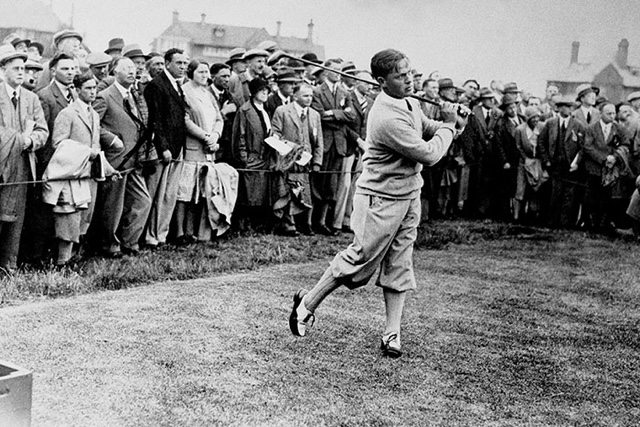In Golf is my Game, Bobby explains this famous quote, and while doing so offers up some sage advice about the optimimum golfer's mindset when playing competitively. He wrote:
"I have often said that I never learned anything from matches or tournaments I won, because of the inclination--natural I suppose--to accept successes as altogether fitting and proper. Whenever I lost, I would analyze the play and try to figure out if I had made any mistakes that might have been avoided. Mechanical misplays were not considered, because a certain number were to be expected. Keeler and I agreed that in most of these lost matches there were identifiable instances when different tactics, usually more conservative, might have produced better results. But I think we agreed, too, that the main trouble was to be found in the fact that I simply did not play match golf so uniformly close to my capability as I played medal. Keeler, at least, figured that if I played as well as I could, I should not lose many matches.
To Keeler, this meant that at match play I should play the card, or against 'Old Man Par' as he put it, so that I should occupy myself only with getting the figures, and let my opponent do what he would. I cannot deny that on occasions I had been guilty of playing a slack shot when my opponent had played one, and then watched him make a recovery I could not match, or had unwisely attempted a daring shot when the risk was too great. I accepted Keeler's prescription, but the following of it seemed to require a bit more.
I was very acutely aware that my mental attitude and nervous attunement towards the two forms of competition were quite different. I was nervous before a match, but it was more an eager sort of nervousness or impatience to go out and see who could hit harder and make the most birdies. Before a medal round my nerves would be even more tightly wound, but the eagerness gave way to apprehension and caution. I always had that hollow feeling in the pit of my stomach, and my concern was to get the agony over, rather than to have the conflict started. I never had any sensation of fear before a match, but more of it than anything else before a medal round.
I suppose I never became as good at match play as at medal, but I did make progress in the former department by the ultimate achievement of the realization that, after all, a round of golf in either form was still a complete structure to be built up hole by hole, that restraint and patience paid off in either form, and that consistent pressure would subdue an opponent just as affectively as an opening salvo of birdies.
It was not precisely playing the card or against 'Old Man Par' hole by hole. It amounted more nearly to setting out in complete detachment from surrounding circumstances to produce a fine round of golf. An opponent might do some damage at one stage or another, but he was not likely to surpass the entire production."
Once again, arguably the greatest player of all time, and certainly the greatest of his day--which is all that really counts--provides us with an honest picture of how he felt and thought when competing. We learn that he wasn't so different from the rest of us. He admitted to always being anxious, apprehensive, cautious, and even fearful, before a medal play event. He had that same hollow feeling in the pit of his stomach that I have always felt before an important round. He was just like me--only more talented, more intelligent, and perhaps better looking.

No comments:
Post a Comment